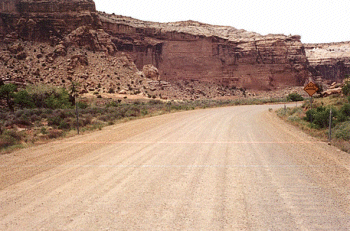
Contact Details:
Filter Focus
Germiston Motor City C7-C8
Jack Rd
Germiston
Gauteng
1402
South Africa
Tel: +27 (0)10 449 6414
Alt. Tel: +27 (0)64 960 3435
Send Enquiry | Company Information

Permazyme 11x® Number 1 Soil Stabiliser World Wide
Product News Tuesday, August 21, 2012: Filter Focus
Permazyme 11x Soil Stabiliser
PERMA-ZYME is a complex 100 % natural, non-toxic concentrated multi-enzymatic formulation that alters the properties of earth materials, providing one of the most cost-effective methods to build (stabilise) roads and foundations. With the appropriate soil, PERMA-ZYME also seals ponds and landfills.
WHAT IS PERMA-ZYME?
PERMA-ZYME is one of the world’s finest products for road and foundation stabilisation. Although it has been available for more than 30 years it is only now actively promoted and distributed Worldwide.
PERMA-ZYME allows road building to reach unknown economical levels. It can be shown, that PERMA-ZYME roads can be built at a fraction of the cost of conventional roads without sacrificing quality. Furthermore PERMA-ZYME stabilises foundations just by being sprayed onto the natural soil, reaching compressive strength values that often make excavation or lime stabilisation redundant. Again, a very economical and time saving feature.
PERMA-ZYME, a concentrated enzyme formulation, uses the properties of earth material to produce superior road base stabilisation. After a few days, the level of firmness achieved with soil (sand, clay or gravel) appropriately treated with PERMA-ZYME is significant (CBR values of greater 100 % as well as compressive strength of 1.5 N/mm² can be reached) .
When mixed with water and applied prior to compaction, PERMA-ZYME acts upon fines contained in the soil through a catalytic bonding process, causing a strong crystallization action. PERMA-ZYME causes the soil to bond during compaction into a dense permanent base, which resists water penetration, weathering and erosion. This process takes place in 72 hours under normal summer conditions and continuous for a very long time.
